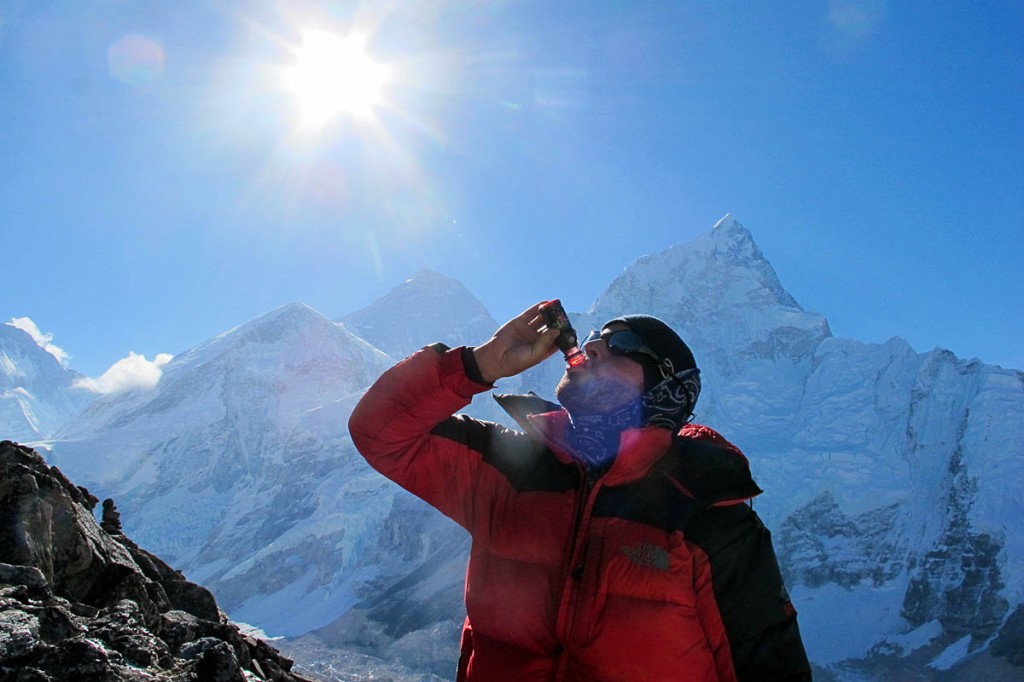A team of scientists looking at how the body deals with altitude say humble beet juice may help.
Researchers from the Mid Sweden University and Norwegian University of Science and Technology found the high nitrate levels in Beet It concentrated shots helped arterial function, allowing better blood flow.
They said altitude affects the body’s ability to distribute sufficient oxygen. The body has to acclimatise to function properly due to the reduced oxygen availability. The recently published paper shows that the natural dietary nitrate contained in the Beet It shot can help with this.
The nitrate interacts with enzymes in saliva to boost nitric oxide in the blood system, which is the body’s natural regulator of blood flow, the team said.
Dr Harald Engan, from the environmental physiology group at Mid Sweden University, said: “During acclimatisation to high altitude, obtaining sufficient blood perfusion is essential. Our study shows that dietary nitrate supplementation reduced the stiffness of the blood vessels, allowing blood to be distributed more easily in the body.
“In this way, dietary nitrate supplementation may be a possibly novel strategy to improve arterial function during high altitude exposure. Whether dietary nitrate supplementation potentially can reduce the risk of developing altitude related diseases needs to be further investigated.”
The Swedish and Norwegian team of scientists spent months in Nepal mostly in the Rolwaling Valley west of Everest
Flow-mediated dilation was measured using ultrasound and doppler in the brachial artery of 11 healthy subjects at high altitude. In a randomised, double-blinded crossover study, FMD was measured 3 hours after drinking beet juice and a placebo supplementation at 3,700m.
FMD was also measured without any beet juice supplementation pre-trek at 1,370m, after five days at 4,200m and on return to 1,370 m after four weeks of altitude exposure above 2,500m. The altitude exposure was interrupted by a descent to lower altitude where subjects spent two nights at 1,370m before returning to altitude again.
Svein Erik Gaustad from the Norwegian University of Science and Technology in Trondheim said: “Next time you plan a trip at high altitude, maybe it is worth carrying a beet juice shot in your backpack. It may be the extra boost your body needs to deliver enough oxygen to your tired muscles and keep you healthy when you are climbing a high mountain.”
Beet It Sport carries the logo of Informed Sport, an organisation that tests products to provide assurance that sportspeople will not fail a drug test as a result of using them. More details of the product are on the Beet It website.
An abstract of the research results is available online.

Steve Boulton
28 October 2015Is this an article, or just a long-winded advert for Beet-It Juice? Call me a cynic, but a link at the end to the manufacturer's web site juxtaposed against a lack of link to the research paper of the researchers from Mid Sweden University and Norwegian University of Science and Technology so we can read their research and make a decision for ourselves as to the veracity of their claims suggests it's advertising. Expected better of Grough.
Bob
28 October 2015The lack of a link to the research was an oversight on our part. I have added this, but it's only to an abstract; you need to pay to see the full academic results.
Bob Smith
Editor